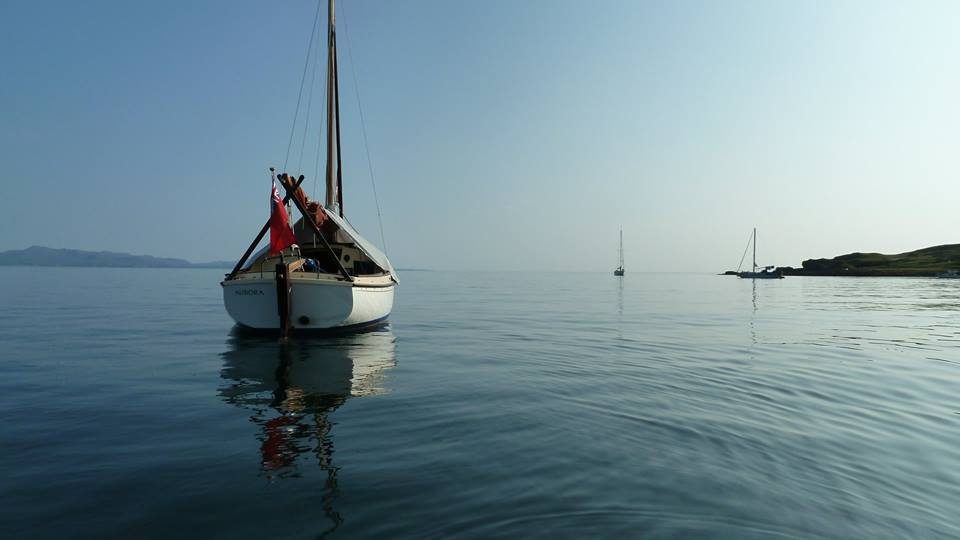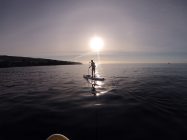Dear M,
Thanks for your email about my last blog post – ‘A flappy sail’.
The question you have asked is a common one. Essentially it is, how can I get my wife to sail with me, and to enjoy it?
I think you need to take some time to work out why your wife is nervous of sailing. I can’t speak for her but for me I am weary and nervous of things that I don’t understand and have to rely on other people for. It’s not just sailing that makes me feel this way, I also feel anxious about map reading, any mathematical equations (excluding algebra as that’s not numbers; it’s working with letters), astronomy and computers. I’ll give you an example of each of these in play:
1) Neil and I, on our honeymoon, sailed in Greece, and a large part of that sailing relied upon chart work. Because I couldn’t read the charts and do the calculations I repeatedly questioned Neil and worried over how he understood it and if we were going in the right direction, to the right place. Neil navigated perfectly for the full two weeks and now I trust him. Kind of. Maybe.
2)The other day a gentleman came into our office and bought three large shackles. I was chatting to another customer who had also come to see us when Neil said “Chenda can you take the money for these three shackles, they’re six pounds each?” Everyone fell quiet and looked at me and suddenly I panicked. What had Neil said? Can I take the money? Three shackles? Six pounds each? What’s that? Oh my God, everyone is staring at me. They’re all going to see how thick I am. I can’t think. What are three sixes? This thought process happened in seconds but felt like days. I smiled, said “sure”, and then paused, giving myself time to calm down. Of course I know that three sixes are eighteen. See, my brain’s immediate response to any mathematical question is to panic and freeze. It’s not very helpful and just increases my fear of maths.
3) Neil and I cannot discuss astronomy or astrophysics – ever! I just don’t understand how they know all that stuff about space and black holes. And especially all that stuff about planets that have never been probed. I don’t get it and Neil doesn’t get how I don’t get it. It hurts my mind thinking about that kind of science and it hurts Neil’s mind trying to explain it to me.
4) My Dad is much like Neil in that he’s at home with the sciences. He’s the only man I know who chooses books on String Theory and Quantum Physics as his bed time reading. As an electronics engineer he’s astounded at my uselessness with anything electronic and particularly computers. I don’t get them, in much the same way I don’t get astronomy. It boggles my mind and the moment I have to do anything remotely sophisticated i.e. a mail merge, it causes much angst and takes hours of researching (and by researching I mean I google it).
5) No matter how many times Neil explains that the sail on the boat is like the wing on an aeroplane and some kind of low and high pressure action happens, I’ve never been able to understand it. I’ve come to understand a lot of other things about sailing but the whole *pressure lift thing is still a mystery I can’t compute.
So if your wife is like me, she probably enjoys things she understands. Maybe, like me, she also likes to be in control of her environment – this makes me sound like a control freak. I’m not. I can relinquish control but I like to have a good level of comprehension so that if anything terrible happens and I need to help then I can.
With all of this in mind, and lets assume that your wife is like me, the first thing to consider is the weather. I can not stress how important this is, and tricky, because the ideal conditions for the nervous would be crew (aka your wife) are similar to those found in the Med. I am talking baking sunshine, crystal blue waters and NO wind.

See it’s tricky. As a sailor you’re thinking, and rightly so, hang on, but sailing is all about the wind. And of course you’re right, but this sail is nothing about the wind and all about your wife and so you want the sea state to be as flat as possible. You want the boat to remain up right with no tipping at all because as soon as the boat starts to heel over your wife will be picturing the moment that the boat tips too far and capsizes. You want this sail (or motor as it may well be given the lack of wind) to be so calm and dreamy that the only thing your wife has to do is to look around, to take in her surroundings and watch you masterfully handle the boat. This scene setting leads me nicely onto the next thing to consider: Communication.

Most men become wholly unreasonable once on a boat and issue orders as if possessed by the late Kim Jong-il, forgetting all manners, barking orders and issuing stoney death stares when faced with either incompetent crew or mutiny in the form of a hostile wife who can not believe the way she is being spoken to. This change in demeanour can often be brought on just by the very idea of going for a sail. Often as a sailor leaves the house, or arrives at the quay or marina, the brusque and challenging personality of ‘captain’ is adopted. Now obviously you’re not like this M, but it’s worth knowing about this strange phenomena so that you can check yourself and take stock if you feel this happening as this will cause another phenomena in your wife known as ‘bristling’. This is to be avoided at all costs as once bristling has been set up in your wife it can be hard to switch off or reset, and can often result in a total shut down.
You M, are probably of the same school of thought as most sailors (Neil included) that there is no time for manners on a boat, no time for please or thank you’s. And this may be true, but, as I had to point out to Neil, he does not take kindly to me ordering him to pick up his carelessly discarded socks in the house. And in the same way, I do not take kindly to being barked at to pull on some rope. Neil and I have talked at length, in the past, about this problem and I am a staunch believer that good manners cost nothing, and if Neil is not going to say please or thank you then he needs to at least be mindful of the saying, it’s not what you say but the way you say it. He is now very good at explaining, ahead of time, what he needs me to do, and why. This has eliminated a lot of conflict but right at the start M, you should be treating your wife as a special passenger, not crew. You want her to be able to relax, and to just enjoy being on the boat until she begins to feel comfortable enough to look at the kit and equipment and think, what does that do? I wonder how that works?
This was how Neil tricked me into enjoying time on the water. He was calm and patient, never asking of anything more from me than to share the experience, to sit back and relax. He only took me out on very calm days, in near perfect conditions and it was great as it gave us a chance to see each other in the best of lights, both literally and metaphorically, and so each time we went out on the boat was like our first date all over again, without the running aground (see How It Started).
It was when I’d become inquisitive about sailing as a process (which took a long time so you need to be committed to this) that I booked a private sail on our Norfolk Oyster with James from Norfolk Etc. He took me through the basics of sailing and that was the turning point for me. After that lesson I was confident in my capabilities and could relax.
In writing this letter to you M, I’ve just come to realise that Neil and I struggled to sail together initially because he always took my nervousness as a slight against him. He thought I didn’t trust and believe in him but it was me that I didn’t trust and believe in. Does that make sense?
I hope this post gives you the same inspiration and insight that your email and question gave me. Regardless though, if you get your wife into sailing or not, always remember the wise words of William Arthur Ward: The pessimist complains about the wind; the optimist expects it to change; the realist adjusts the sails.
See you on the water,
Richenda
*Neil said that I should insert ‘low’ here as in ‘low pressure lift’ and has started to explain the theory of the sailing all over again – even going into something about the centreboard and resistance. I’ve told him that you understand all this anyway, M, so there’s no need to go into such technical detail, especially when they are details I struggle to understand!




